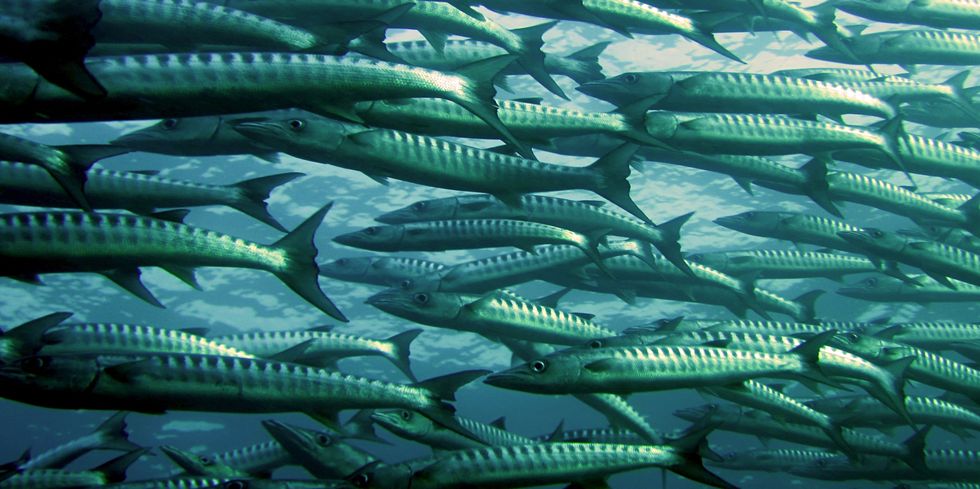"The Shape of Water" is the newest film from acclaimed Mexican director Guillermo Del Toro. He is best known for the mix of fantasy elements with harsh adult themes that pervades most of his work. This film is no exception, blending a love story about a fish monster with themes of discrimination and Cold War paranoia. It is a visually rich and frequently touching film that stands as a high mark for his English-language films.
The story is set in the early 1960's and follows Elisa Esposito (Sally Hawkins), a mute woman who works the night shift as a janitor at a government research facility. She lives a lonely life, with few friends outside of her neighbor, Giles (Richard Jenkins) and her coworker, Zelda (Octavia Spencer). One day, the belligerent Colonel Strickland (Michael Shannon) arrives at the facility with a newly discovered creature, an amphibious humanoid captured in the Amazon river basin. Strickland treats the creature cruelly, seeing no other use for it than vivisection.
Elisa, taking pity on the creature, begins sneaking it food. Over time she realizes that the creature is capable of understanding sign language and exhibits signs of higher intelligence, and formulates a plan to take the creature away from the facility. With the help of Giles, Zelda, and a Russian spy, Elisa is able rescue the creature. No sooner do they escape, Strickland sets out to recapture his specimen. While keeping the creature in her apartment, Elisa realizes she has fallen in love with the giant amphibian. Will she be able to release her lover back into the wild before the government catches up with them?
The strength of "The Shape of Water" is its thematic underpinnings. Ultimately, this is a story about the desire to be accepted for who you really are. Elisa feels alone and unable to completely relate to others because of her disability. The amphibian creature cannot speak, only communicating in sign language once it is taught by Elisa. Therefore, the creature does not see her as incomplete, and accepts her for what she is. This theme of wanting to be accepted is furthered by the discrimination faced by Elisa's friends. Zelda is a black woman, and Giles is a gay man, and both face discrimination from the people around them. These two side characters live in a time period where they are unable to be accepted for who they are. Even though a romance between a human woman and a monstrous fish man may seem unlikely, the film sells the idea effectively because of the desire to belong that pervades the story.
In typical Del Toro fashion, however, these heavy themes are counterpointed with moments of the fantastic. There is a particularly charming dream sequence in the style of a Busby Berkley, in which Elisa is finally able to speak, singing her confessions of love to the creature as they dance around an abstract art deco set. The film makes excellent use of underwater visuals, as well, capturing the ethereal beauty of things and people floating around, seemingly weightless. The colors of the film, while not as extreme as Del Toro's previous film, "Crimson Peak", are nonetheless beautiful. The movie is full of ambers, greens, and blues, all suggesting the sea. Del Toro truly understands the wonder and awe that only cinema can bring, which is perhaps why at one point the film features a stunning shot of the creature transfixed by a giant movie screen.
"The Shape of Water" is a joy to watch. Hawkins is sympathetic and affecting despite never speaking a line of dialogue, which is an impressive feat. Like "Pan's Labyrinth" before it, this film is a shining example of Del Toro's unique ability to balance fantastic, fairy tale elements with adult themes and brutal violence. It is strangest love story since "Lars and the Real Girl", but it is thoroughly charming and one of this year's best genre films.
Rating: 8/10


















